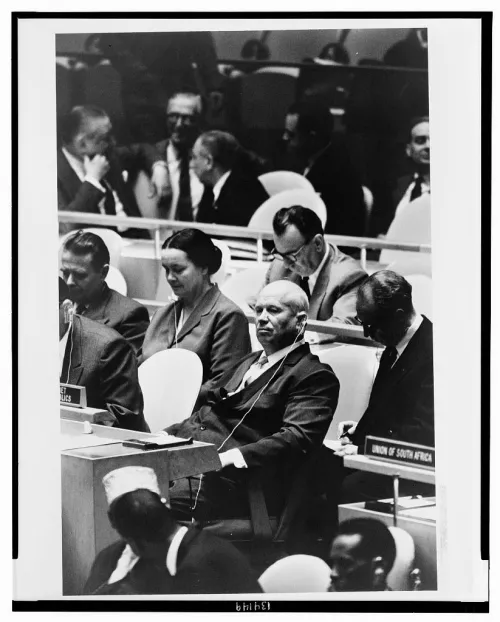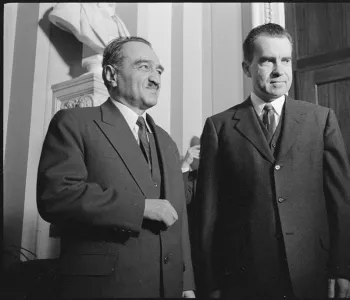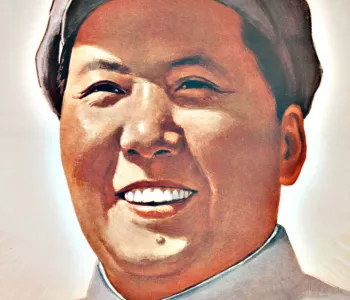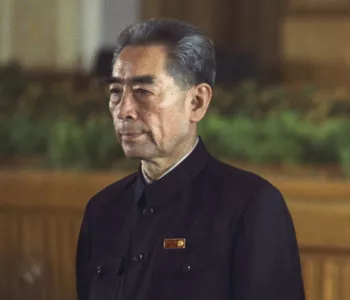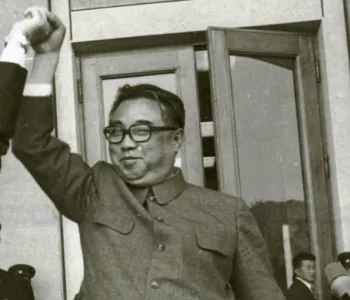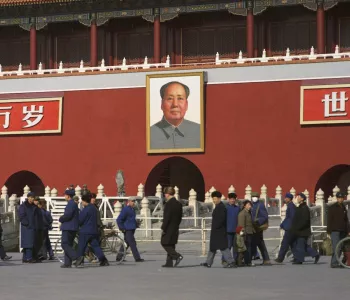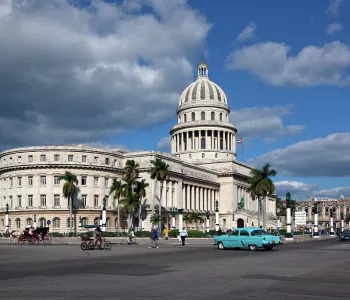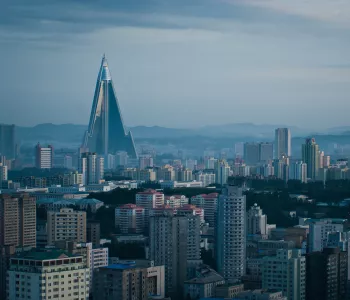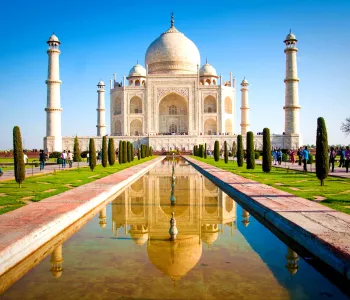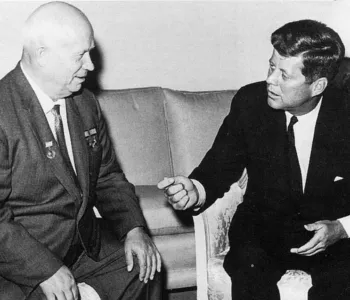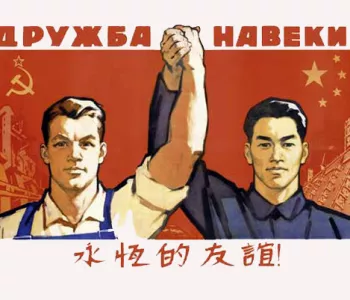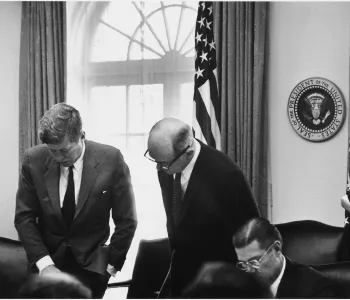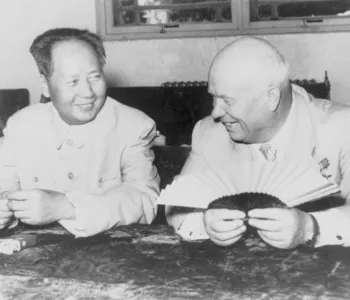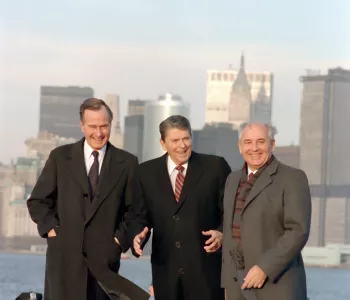Nikita Sergeyevich Khrushchev was born in 1894 to an illiterate peasant family in Kalinovka, a village near Russia's border with Ukraine. To supplement his family's meager income he began working at an early age, but despite this, and despite his father's second job as a coal miner, Khrushchev's family was unable to survive as farmers. In 1908 they moved to an industrial center in Ukraine, where young Nikita began working in a factory. It was the beginning of his activist career: at the age of 18, Khrushchev joined a group of workers who had organized a strike protesting working conditions. He was fired.
Khrushchev found another job but continued his activism, helping to organize strikes in 1915 and 1916. In 1917, after the Russian Revolution had ousted the Czar, Khrushchev joined the Bolshevik forces of the Red Army in the Russian civil war, serving as a political commissar. He was now a dedicated communist.
After the Russian civil war, Khrushchev was given a series of political assignments and received his first formal training in Marxism at a Technical College. After graduation he was appointed to a political post in Ukraine, where Lazar Kaganovich, a protégé of Joseph Stalin, was head of the Communist Party. Khrushchev joined Kaganovich in supporting Stalin in his power struggles against Leon Trotsky and Nikolai Bukharin. With Stalin's success, Khrushchev's career soared. In the 1930s Khrushchev was promoted from one political position to the next, until finally, in 1935, he became second in command of the Moscow Communist Party. In Moscow, Khrushchev oversaw construction of much of Moscow's subway system, and in 1939 he became a full member of the Politburo.
Khrushchev's rise to power coincided with one of the darkest periods in Soviet history: the Great Terror. During the 1930s, Stalin began a series of bloody purges to consolidate his power. The terror spread throughout the Soviet Union, and Khrushchev was part of it, denouncing several fellow students and workers as "enemies of the people" and willingly taking part in the extermination of the Ukrainian intelligentsia.
By the time Nazi Germany invaded the Soviet Union in 1941, Khrushchev had been sent to head the Communist Party in Ukraine, which put him near the front lines. He saw the devastation of war first-hand as the Germans routed the Red Army, then again as the Soviets turned back the Nazi advance.
After WWII, Khrushchev was called back to Moscow, where he soon became one of Stalin's top advisers. When Stalin died in 1953, Khrushchev and Nikolai Bulganin won a power struggle against Stalin's successor, Georgi Malenkov, and secret police chief Lavrenti Beria. Beria was executed, and Malenkov was forced to resign. Bulganin became premier, but Khrushchev, in charge of the Communist Party, soon became the dominant figure.
Khrushchev's leadership marked a crucial transition for the Soviet Union. From the beginning, Khrushchev set out to make the Soviet system more effective by curbing Stalin's worst excesses. In an historic speech to the 20th Party Congress in 1956, he attacked Stalin for his crimes -- acknowledging what many people believed, but which no Soviet leader had ever dared mention. What Khrushchev dared not mention was his own complicity in those crimes.
Khrushchev's advocacy of reforms contributed to a groundswell of independence movements among Soviet satellite nations in Eastern Europe. While promoting change, Khrushchev would not tolerate dissent: he supported sending tanks into Budapest in 1956 to brutally suppress a Hungarian rebellion. The Iron Curtain remained in place.
In relations with the West, Khrushchev's tenure was marked by a series of high-stakes crises: the U-2 affair, the building of the Berlin Wall, and the Cuban Missile crisis. At the same time, he was the first Soviet leader to advocate "peaceful coexistence" with the West, and to negotiate with the United States on reducing Cold War tensions.
By 1964, his reforms had alienated too many powerful Soviet constituencies. A group of conservatives led by Leonid Brezhnev ousted Khrushchev, and he retired to a dacha in rural Russia, where he died in 1971.
